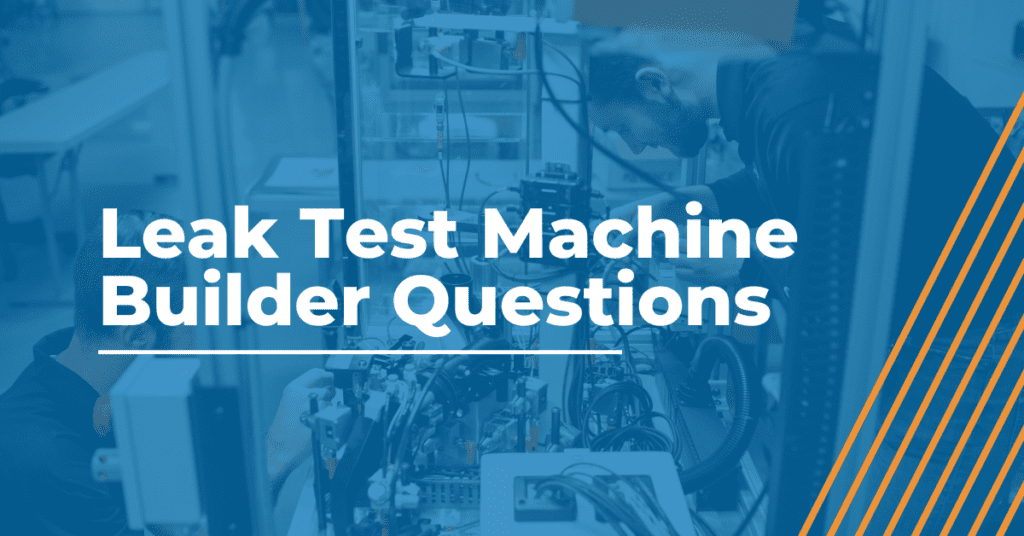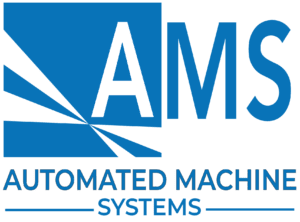
10 Things to Discuss With Your Leak Test Machine Builder
When you decide to implement new testing equipment into your production process, the first step will be to speak to an engineer about building the machines. In order to create the optimal testing equipment, your test machine builder will need to consider many factors. Engineering can be complicated, which means discussing the important information can also become complicated. To make the process a bit easier for you, we have created a comprehensive list of 10 things to discuss with your test machine builder about your new leak testing equipment.
1. Costs
Any discussion of equipment expenses should include both the initial costs and the costs of owning. Your budget is no doubt a critical (and likely one of the most complicated) factors in all areas of your operation, and it is important to understand the expenses involved in building new testing equipment.
The initial first costs will involve aspects such as materials, installation, labor costs and other opportunity costs. After the first costs, there are still some continuous expenses involved in owning the equipment. This includes factors such as maintenance, which is, of course, critical for your equipment.
2. Safety
Another extremely important factor that needs to be considered when talking to your test machine builder is the safety of the machines. This not only includes assessing the safety of operation, but also construction, installment and maintenance.
3. Risks of Failure
With any sort of machine, there’s always the risk of it failing to perform. Because leaking testing machines are built to test for imperfections, it poses a major quality risk if they fail. These machines must be assessed with certain criteria to ensure the risk isn’t too great.
4. Lifespan
How long is this equipment going to last? With proper maintenance, mechanical machines can last more than 20 years. As you talk to test machine builders, you should discuss the predicted lifespan of their machines, and when they might need to be replaced according to your specific circumstances.
5. Experience of the Test Machine Builder
This factor comes into play not in the building process, but when assessing possible partners to build your machines. What is their reputation like, do they have proper experience and will their specific qualifications be useful for your purpose?
6. Energy Use
While this aspect can be complicated to evaluate, it should not be overlooked. You should consider the energy being consumed by your new equipment, it’s energy efficiency and code requirements involving energy use.
7. Building Design
Engineers must consider the machine’s impact on other building design factors such as plumbing and electrical systems. Taking these factors into account is known as coordinating. When implementing a new machine, it is of the utmost importance to assess the risk and avoid interference with other elements in the building. Is this equipment suitable for its use and location? Will it be able to work in harmony with other systems?
8. Environmental Sustainability
There are many criteria and requirements for the use of different substances in the machines. Whether this is involved in the maintenance process or part of the machine’s job, it’s important to consider if any hazardous materials will be required for use. Any materials that are dangerous to the environment must be properly handled. It’s wise to discuss this topic with your test machine builder.
9. Constructability
It’s also critical to consider aspects such as installation time, transportation and storage. How will the machine be transferred to its place? Is it able to be safely transported over roads without interference? You should not only consider the machine’s effects on the world around it, but also the effects these circumstances might have on the machine. If there were a delay in installment or transportation, would the machine be able to remain at the factory?
10. Future Planning
Consider the efficiency of this new machine, and whether it will remain optimal in the near to distant future. This goes hand-in-hand with considering the costs of owning the machine. With input from your test machine builder, determine whether owning this new equipment is going to be cost effective in the future and if the benefits justify any risks.
Want to Ask a Real Leak Test Machine Builder These Questions?
Even with these 10 factors, there are a lot more details that you might need to discuss with your leak test machine builder. We know the process of customizing and purchasing a leak testing machine can be confusing and complicated. It’s why we are here to help. You can contact us or book a virtual meeting for a more in-depth discussion of your new testing machines.
